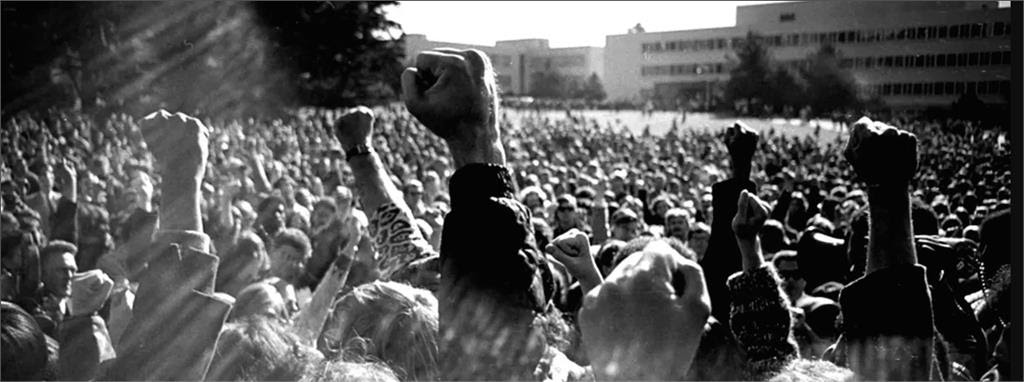
| Narrated by Daniel Dae Kim and Tamlyn Tomita
Series Produced by Academy Award®-nominee Renee Tajima-Peña Five-Part Series Premiering May 11 and 12, 2020 |
| About ASIAN AMERICANS The most ambitious television chronicle of the Asian American story to date, the 5-hour docu-series, ASIAN AMERICANS, will launch on May 11 and 12, 8PM. ASIAN AMERICANS delivers a bold, fresh perspective on a history that matters today more than ever, at a time when themes of immigration, race and xenophobia, inform all facets of the national conversation. As the United States rapidly becomes more diverse, but also more divided, how do we move forward together?Asian immigrants first arrived in large numbers during the mid-1800s. They were mostly young laborers and full of dreams, but they were met with hostility and hysteria. Branded the “Yellow Peril” and the “Dusky Peril,” they were blamed for disease, vice and unfair labor competition. Long considered perpetually foreign and unassimilable, Asians faced exclusionary laws and were barred from becoming citizens. They were America’s first “undocumented immigrants.” |
| The series will take audiences through the momentous years since then, and the lives of people who helped to shape this history. ASIAN AMERICANS is about their resilience during extraordinary times, through anti-Asian exclusion, a Great Depression, multiple wars fought in Asia, mass incarceration, and the journeys of countless refugees.
At each of these tipping points, core ideals of equality and justice were constantly tested. Yet Asian Americans built railroads and cyber-highways. They created families and communities, and stood up for their ideals in the courts, at the ballot box, in the fields, on the streets and in the culture. ASIAN AMERICANS illuminates two visions of the American Dream for the nation’s fastest growing population: One of opportunity and a better life, but also the pursuit of democracy and equality. It is the story of how a people, long denied citizenship, have come to define what it means to be an American. EPISODE 1: BREAKING GROUND (1850’s-1920’s) •Interviewees include Mia Abeya, Candy Gourlay, Gordon H. Chang, Connie Young Yu, Vivek Bald, Sharmila Sen, and Nancy Wang Yuen This era of nation-building and expansion is also a time of Asian exclusion and Jim Crow, as the United States wrestles with the definition of who can be an American and who is deserving of full citizenship. Despite anti-Asian sentiment and policies, immigrants continue to arrive from China, India, Japan, Korea, and the Philippines. Barred by exclusionary laws and considered aliens who could never assimilate as Americans, Asians become the nation’s first “undocumented immigrants.” Yet they build railroads, create families and communities and dazzle on the silver screen. With no political power, Asian Americans challenge inequality in the courts, and set landmark US Supreme Court precedents that guarantee birthright citizensh EPISODE 2: A QUESTION OF LOYALTY (1920s-1940s) •Interviewees include Satsuki Ina, Flip Ahn Cuddy, Jane Hong, Roberta Uno, and Brian Niiya An American-born generation are citizens by birth, while their immigrant parents remain “aliens ineligible for citizenship.” These young Asian Americans come of age straddling two cultures, between the United States and their familial homelands. Those loyalties are tested as Japan ramps up its imperial aggression during the 1930s, and the Pacific War breaks out in the 1940s. The episode tells the story of the children of a Korean independence leader, Japanese American families imprisoned in detention camps, and for four brothers who find themselves on opposite sides of the battle lines. EPISODE 3: GOOD AMERICANS (1950s-1960s) •Interviewees include Jeff Chang, Randall Park, Helen Zia, Alex Fabros, David Henry Hwang, Winifred Chin, Wendy Mink and Tammy Duckworth The episode opens with a retro montage of 1950s Asian screen images that populate the Cold War years. It is a time of contradiction for Asian Americans. They are heralded as a quiet Model Minority, an image that is used as a wedge against African American demands for civil rights and equality. At the same time, they are targeted as perpetual foreigners and suspected as Communist subversives. It is also a time of bold ambition, as Asian Americans aspire for the first time to national political office, while a cultural and political awakening simmers beneath the surface. EPISODE 4: GENERATION RISING (1960s-1970s) •Interviewees include Lily Lee Adams, Laureen Chew, Nobuko Miyamoto, Brenda and Jan Sunoo, Ham Tran and Viet Thanh Nguyen. A young generation is transformed by the Vietnam War and social tumult at their universities and in their communities. They fight for equality in the fields, on campuses and in the culture, and define a new identity: Asian Americans. Just as quickly, new immigrants and refugees arrive and expand the definition of Asian America. EPISODE 5: BREAKING THROUGH (1980s-2010s) •Interviewees include Hari Kondabolu, Mee Moua, Helen Zia, Viet Thanh Nguyen, Jeff Chang, Angela Oh, Jerry Yang, Oanh Ha, and Tereza Lee At the turn of the new millennium, the country is growing more diverse, yet also more divided. Asian Americans are empowered by rising numbers and influence but face a reckoning of what it means to be an American in an increasingly polarized society. From Koreatown to Detroit and upstate New York, Asian Americans navigate the fault lines of immigration and racial conflict while innovating new technologies and cultural forms, and work alongside other Americans to create a more just future. |
